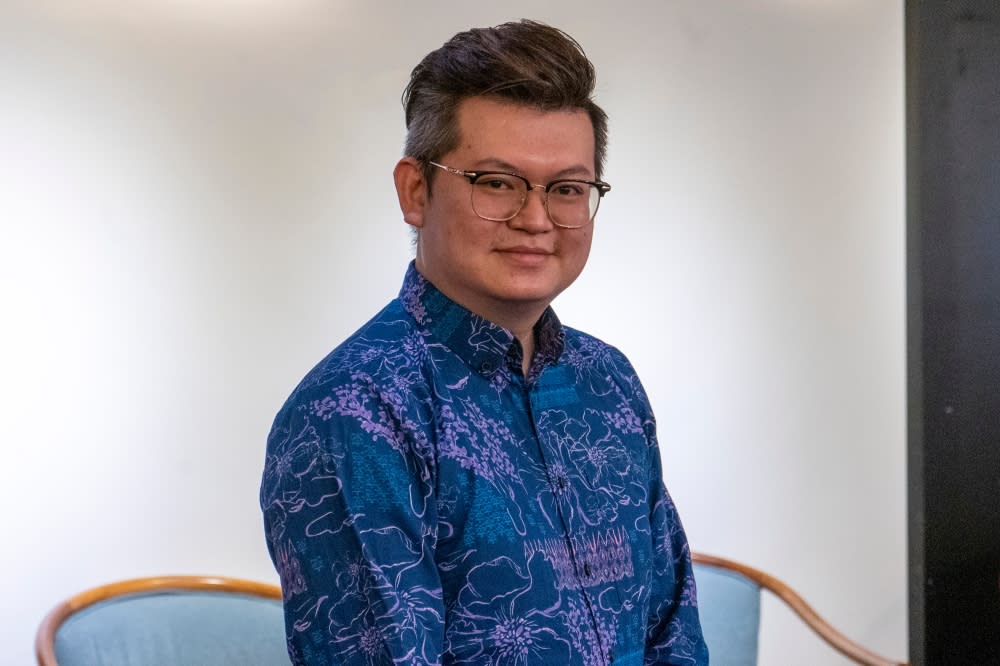DAP MP Dr Yii: Govt should exempt traditional medicine, physiotherapy from service tax

KUALA LUMPUR, Jan 3 — The federal government should give service tax exemption to physiotherapy as well as traditional and complementary medicine (TCM) services, as it could otherwise potentially lead to patients having to pay higher prices, DAP’s Bandar Kuching MP Dr Kelvin Yii Lee Wuen said today.
Dr Yii, who is also DAP Youth chief, noted the potential effects if the service tax — which will be increased from the current 6 per cent to the new rate of 8 per cent on March 1, 2024 — is imposed on such healthcare services.
“I believe the Federal Government should reconsider their decision to impose sales and service tax (SST) on physiotherapy and Traditional and complementary medicine (TCM) treatments, which may see a significant increase in prices when the new 8 per cent sales and service tax (SST) comes into effect in March 2024,” he said in a statement.
“I believe that exemptions must be given to any facility managed by any practitioner registered under the Allied Health Professions Act 2016 [Act 774] and the Traditional and Complementary Medicine Act 2016 [Act 775] for the purpose of healthcare,” he said.
The Allied Health Professions Act covers a wide range of allied health professions including physiotherapists, while the Traditional and Complementary Medicine Act covers traditional Malay medicine, traditional Chinese medicine, traditional Indian medicine, Islamic medical practice, homeopathy and complementary therapies.
Dr Yii said healthcare should be viewed as an integrated holistic ecosystem where both modern medicine and TCM are integrated with proper control and supervision for the patient’s wellness, and said this common and widespread evidence-based trend worldwide should be exempted from the service tax.
He said the Health Ministry also regulates traditional Chinese medicine and includes it in both the 2016 law on TCM and the National Traditional and Complementary Medicine Policy.
He added that the National Health and Morbidity Survey 2015 shows TCM’s important role in Malaysians’ healthcare, as nearly 30 per cent of the population use such services for their overall wellness.
Dr Yii said this is why he welcomes Deputy Finance Minister Lim Hui Ying’s engagement with the industry, the Customs Department, and the Finance Ministry’s tax division to find a solution to this issue, as it would be affecting close to 7,000 local practitioners.
Last Friday, Lim — who is also from DAP — said the service tax collection on traditional Chinese medicine services was not a sudden decision by the current government, but is a policy applicable since 2018 due to traditional medicine being categorised in a taxable category. The service tax would be imposed if the taxable services by an operator exceeds RM500,000 annually.
On December 31 last year, Sarawak United People’s Party (SUPP) Women chief Kho Teck Wan urged the federal government to exempt traditional Chinese medicine, physiotherapy and chiropractic services from the service tax.
Kho noted that traditional Chinese medicine service operators had been told to pay backdated service tax from 2018 to 2023 by May 2024, while saying that operators of physiotherapy and chiropractic centres had said they were recently asked to pay backdated service tax and to begin collecting such tax on their services from January 1 this year.
Last Friday, MCA president Datuk Seri Wee Ka Siong too urged the government not to discriminate against traditional and complementary medicine (TCM), expressing hope that the government will provide SST exemption for TCM just like modern medicine which enjoys such exemption.
The calls by these politicians from political parties within the unity government for the SST exemption on such healthcare services came after news surfaced of the service tax collection.
Last Thursday, local daily China Press in an exclusive report said that the Customs Department had sent out a letter to traditional Chinese medicine practitioners to ask that they pay service tax dating back to 2018 — which was when the SST regime was revived to replace the now-abolished GST.
The Customs Department letter was reportedly sent to eight bodies in the traditional and complementary medicine (TCM) field — including those representing traditional Malay medicine practitioners and traditional Indian medicine practitioners.
The eight bodies which received the Customs Department letter are reportedly the Federation of Chinese Physicians and Acupuncturists Associations Malaysia (FCPAAM), the Federation of Chinese Physicians and Medicine Dealers Association of Malaysia (FCPMDAM), the Gabungan Pertubuhan Pengamal Perubatan Tradisional Melayu Malaysia (Gapera), the Pertubuhan Perubatan Tradisional India Malaysia (Peptim), the Malaysian Homeopathic Medical Council (MPHM), the Federation of Complementary & Natural Medical Associations Malaysia (FCNMAM), the Persatuan Perubatan, Pengubatan dan Kebajikan Islam Malaysia (Darussyifa’) and Malaysian Chinese Medical Association (MCMA).



